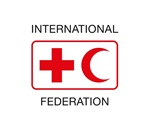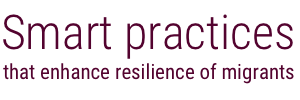A central database accessible by a number of National Societies to help improve tracing services internationally.
The Belgian Red Cross Flanders developed the Red Cross tracing application (also known as the European tracing database), a tool used by 19 National Red Cross and Red Crescent Societies across Europe (as of January 2014) to increase the efficiency of tracing services for displaced people in Europe. Individuals can register a request in the database and check if the person searched has also registered an enquiry in another country where the application is functional. This system facilitates linkages between two family members in two different countries in Europe in the event that each is looking for the other. The database aims to facilitate tracing requests from persons situated in the European Union who are looking for their relatives and loved ones who might also be within Europe. The database is only accessible by National Red Cross and Red Crescent Societies, ensuring migrants can register without concern that their information might be consulted by other bodies or institutions. The system incorporates a phonetic search engine to avoid missed matches due to misspellings of names. The data in the RCTA will be merged with the data in Trace the Face (see www.tracetheface.org).
4,654 persons were registered as of May 2016 across 19 National Societies. 32 families had been reunited by May 2016.
Design. [P1] Focuses on supporting migrants who need to relocate missing family. [P4] Recognizes the right of all migrants to restore contact with family.
Implementation. [P7] National Societies along migratory trails work together on the database.
Programme. [P9] Responds to displaced people.
- The application only works for two individuals who both have access to Red Cross Red Crescent tracing services in countries where the application is available.
- Not all National Societies along the migratory trail were persuaded to participate.
- Data protection legislation limits the use of personal data.
- The number of persons registered correlates with matches.
- A unique and uniform registration of all persons (enquirers and persons sought) is imperative to increase the success rate.
Smart practices
Smart practices report and database survey
About the report
People migrate in pursuit of a better life for themselves and their families. As described in the International Federation of Red Cross and Red Crescent Societies’ (IFRC) Policy on Migration, “migrants are persons who leave or flee their habitual residence to go to new places – usually abroad – to seek opportunities or safer and better prospects.
Read more
About the International Federation

